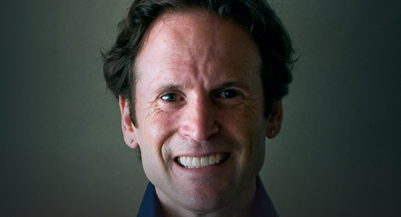In this Episode
- [01:40] – Aaron starts off the conversation by talking about his background and his many children. He also addresses how much of his time he spends away from home versus with his family.
- [05:15] – It’s taken Aaron a lot of years to get to the point where he can make the money he needs from relatively few hours per week, he explains.
- [09:00] – We hear more about Aaron’s book From Impossible to Inevitable.
- [12:13] – Aaron elaborates on the concept of renting a job that he has been talking about, comparing it to the experience of owning versus renting a house or car.
- [14:39] – What does Aaron do when he has employees who are just there putting in the minimum not to get fired?
- [16:53] – We hear Aaron’s recommendations for careerists and CEOs, setting aside the clockers and complainers for the moment.
- [18:49] – Stephan and Aaron discuss some things that managers struggle with. Aaron then digs into what he calls forcing functions.
- [22:27] – Should you get rid of the complainers in your organization?
- [25:12] – Leaving your job because you’re working for a toxic person isn’t always easy, Aaron points out, and acknowledges that there are certain circumstances where you may need to stay for a while.
- [27:49] – Stephan talks about a recommendation that he got from Dr. John Demartini for the hiring process.
- [30:15] – Aaron talks about the StrengthsFinder test.
- [32:09] – We learn about the difference between earning money and creating money.
- [35:23] – What’s better: trying to do your side hustle and turn it into a business while you’re still employed, or quit your job and throw yourself into your business venture?
- [40:02] – Aaron discusses one of his exercises for increasing your deal size.
- [42:11] – We hear three pieces of advice for someone who is looking to go to the next level in their life.
- [44:37] – Where can listeners get in touch with Aaron to learn more about him or work with him?
Transcript
This episode number 143 is all about lifestyle design both for business owners and employees. Consider this, most employees are renting their jobs. You’re going to learn all about this. You’re also going to learn how employees can have emotional ownership—if not financial ownership—and how to tell the difference between complainers and toxic people, and then what to do about it. Our guest today is Aaron Ross. He’s the author of From Impossible to Inevitable and Predictable Revenue often called the sales bible of Silicon Valley. Aaron is married with 11 children–mostly through adoption and keeps a 25-hour workweek. He’s co-founder of Predictable Revenue–the outbound success company and also co-founder of predictableuniversity.com. Aaron, welcome to the show.
Thanks, Stephan.
Let’s talk about, first of all, a little bit about your background. It’s kind of awesome and a little bit surprising that you have so many kids. If you could share a little bit about that story, that’d be awesome.
I think a lot of people are shocked to find out that we have nine kids. It’s just not that common anymore in big cities or for people in the tech space or in the business space, in general. It’s not that common at all. Leave that shocked look.
I bet. Tell us a bit more about the story of how that happened and how you managed that with your business and all the cool stuff that you’re doing out in the world.
I do have a business, Predictable Revenue, there’s a couple of offshore side businesses. I have to work and make money like most people. A lot of people know me from the Predictable Revenue book and the fact that helped build the Salesforce.com sales machine. I started at Salesforce early, but not early enough, so I do have to work. Building a family wasn’t something were we thought, “Okay, how much money do we have?” and “How many kids can we have?” with that budget. It was a lot more along the lines of, “We want to have kids.” We didn’t start with an idea of having a big family, but along the way, it felt right, we added people to the family then we figured how to make money later to support it because it’s expensive. We spend more per month on the family because we’re in West LA than my wife used to make in a year as an executive assistant.
How often are you traveling and away from home? How much time do you spend with your family?
I spend a lot with my family. I do have to work, but it’s hard to get to work more than 15 hours a week at this point because I’m a very active father and my wife is gone a lot. She’s doing a lot with learning and singing. Where the nine kids come from, there are two from her prior marriage, and she actually, was a mom at 20. Most of her life has been on hold for a long time. The kids, two from prior marriage. The three, bio kids together, and we adopted four kids, just nine. In terms of the time with the kids, I travel maybe once a month. I try to minimize it, but I do have to make money. I have to make a lot of money. Sometimes, I travel to visit clients, consulting clients. Sometimes, I do keynote talks or sales kickoffs, that’s usually when I travel. Most of the weeks, it almost constant full-time fathering because age ranges from 1-year-old up to 19. The young kidthere’s 1-year-old, 2-year-old, and 3-year-old, they take a lot of the energy and time, the physical energy, and time during the week. We do have a nanny, usually one per day. If I work more than 25 or 35 hours a week, it just didn’t seemed right to me. Over the years, I’ve learned between building my brain and business and I am just learning how to manage my time and my mind to get what I need to get done in that 15-20 hours a week of work that I budget for.
You wouldn’t probably be able to accomplish what you accomplish working for somebody else, it’s for your own business, working 15-20 hours a week. If you were doing that for some other company, I can imagine that you would be able to create as much wealth and income for yourself.
No. For sure, not. It has taken me a lot of years to get here. Not to denigrate jobs because jobs have a regular income. When you have your own company, a lot of times you don’t yet, not enough. Jobs can be the best way to pay, to fund a startup, and support a family sometimes. We do have a pretty unique life. I left Salesforce about 15 years ago. Over the course of 15 years, it’s taken a lot of years to make this vision happen and be able to make a lot of money with a lot less work. I have a strong brand in the tech world, in the sales world, and also some great business partners; my wife, I couldn’t do without, she is my extended team, a lot of time, energy, patience, and diligence to get here.
Now you’ve got what some entrepreneurs refer to as lifestyle designing. You can design the kind of life that you want to lead without being beholden to some boss telling you that you need to be in the office this amount of hours.
The thing is when you trade one boss for another when you’re an entrepreneur, you either have a boss who could be investors, or you may have customers, or payroll. Payroll is a really tough boss, that’s a tough one. Even when I was younger, I sort of had this vision, “Oh, can you just do what you want when you want, love your work, make a lot of money, and no stress.” It doesn’t really work that way. Any problem you solve leads to another problem. You make a lot of money, it leads to different problems—hopefully, better problems. Having lots of kids, my time, energy, and money. I have a great team, brand business, and other things but my physical time and energy, and just general, family and money are all challenges. We spend a lot. We’re very active—babies are awake at night, it’s just everything. It’s a very full life with all the good and the parts that aren’t as fun. I do a lot of poop every day. Three little dogs, too. It’s not that glamorous really. There are a lot of really beautiful fun moments every day.

It’s been awhile since I’ve had kids in diapers. I had multiple kids in diapers at the same time. My oldest and my second oldest are 17 months apart in age. There’s a lot of differences between employees and employers or entrepreneurs in terms of how they think, their risk tolerance level, in fact, you encapsulated this so well in your book From Impossible To Inevitable. We had a whole chapter dedicated to the employee mindset. We even had a letter written by a hypothetical employee to his or her employer or the management team and then vice-versa. There is a letter from the manager, from the executives, I just thought it was so poignant. Same planet, different worlds. Can you elaborate a bit on this? I think it’s so important and if somebody wants to cross the chasm from being an employee to being an entrepreneur, a business owner, somebody who’s more in charge of their own destiny, that I think is essential reading. Let’s talk a bit about that.
You mentioned, the book is called From Impossible To Inevitable. It’s on Amazon, fromimpossible.com, it’s an easier place to find it, you can get a free chapter there. The intention of the book is to answer three questions. How do you grow sales faster? What does that take? Why aren’t you growing as fast as you want? How do you keep up the growth? People want to make more money, that is really is for companies with salespeople, but the principles that companies used to grow and make money are really aren’t always that different than what individuals want to do with their own money or career. In case you read the book this way and you don’t have a company, you can apply it to your own life in a lot of ways. There are seven sections. Some of the sections are about how to nail your niche, where your best target market is, something about sales. If you’re an executive and you’re building your own business, you can have great ideas, but unless your people are behind you or with you, it’s just not going to work. The last of couple sections, one is as you mentioned, for executives who want employees to work as hard as they do, it’s called Part Six. The painful truth of Part Six is your employees don’t work as hard as you do because they don’t own the business like you do. Employees really rent their jobs, they don’t own them. Jason Lemkin and I were trying to get executives or owners and employees to see each other’s sides.
Especially now with millennials, younger people in companies, I was this way, “I’m doing great in my job now, maybe I’m not, but if I had the right opportunity, I could just crush it for you.” Isn’t everyone who’s young and basically eager at a company think that way. The job that I’m doing, “I can do better than this.” “ I can be better than this, why am I doing this kind of groundwork?” From the executive’s side, their perspective is, “I’ve been there too. I am there too.” “Hey, young employee, you’re great. I appreciate you. We wouldn’t have hired you otherwise, but what you have to understand is if you want to make a leap in your career, to make jumps in your career, it doesn’t mean you just check the box as you go. It means you need to be proactive in making things happen. If you’re waiting for us to hold your hand and make things easy for you or just recognize you. If you’re waiting for us to hold your hand to tell you how to be successful, by definition you’re not the person who’s making those leaps because what executives and owners want are people who make less work for us. If I need to hold your hand and tell you what to do all the time, you’re making more work for me.” These two letters to each of the side try to have a common understanding. Just have better communication, a perspective where the other group is coming from because we get lost in the shuffle a lot of times.
When you said that a lot of employees rent their jobs, can you elaborate a bit about that? I think that’s probably a pretty foreign concept to our listeners. Renting a job, how do you rent a job?
Think about it this way, which is if you own a house versus rent a house, how do you treat them differently? Or if you own a house versus rent an apartment? If you own a car versus you rent a car, how do you treat them differently? If you’re babysitting your own kids versus babysitting someone else’s kids, how do you treat them differently? That’s the difference between emotional ownership–I am owning something versus renting it. For jobs, most people don’t emotionally own their jobs. They don’t feel like they own their job because they really don’t. They’re just renting it, they’re sort of buying their time here. Does that part really talk about how do you create more emotional ownership with people? For example, if they’re not making the decisions on their job, they don’t really own it. If they don’t have goals or deadlines or obligations, they don’t really own it. Here is a better example, I think I used it in the book which is the company Refrigerator. It gets treated as community property because there’s not really one person that owned it. But if you had one person and everyone knows that that one person is in charge of it, and they’re the ones allowed to make decisions when it gets cleaned and what is in it, there’s a lot more ownership of that person.
You don’t have to have ownership in a financial sense. You don’t have to give equity away to your employees, but emotional ownership is a requirement for them to be proactive and to not be a clock puncher.
And, “What do I really own?” As well, as “How am I getting compensated for this?” There’s also the rewards, too, and have the intrinsic and extrinsic motivation combined.
Let’s say you have some employees who are clock punchers. They just show up in their warm body and they put in the minimum effort to not get fired. They just don’t really care. Their heart is certainly not in it. Do you fire them? Do you give them progressive discipline? Do you just accept that that’s a percentage of your workforce? How do you deal with that?
That’s a good question. We also laid out these four types of employees in the same section. The four types. There’s the career types, the ones who are climbing up the ladder. Anyone who has gone up from salesperson to manager or director. Then there’s the clockers who are just there putting in the minimum. They just need the money, don’t really want anything else. There’s the CEO types, the entrepreneurial spirits; whether they’re titled CEO’s or not. Then there’s the complainers. Funny enough, by the way, when I talk about this in speeches, there’s always a laugh because I point out that the CEO and the complainer are quite closely related. CEO is really more by spirit. It can be executives. CEO’s are always complaining in their mind. They always see problems with everything. The difference is complainers just talk and complain and the CEO types try to do something to fix the problems. It’s really that action is the difference between the CEO and the complainer.
On the clocker side, there’s not much that you can really do. I don’t think that’s where your best effort is going to be usually unless you’re getting some serious problem you’re seeing. With clockers, there might just be a lack of interest. There could be a lot of reasons. My wife was a clocker at a company for a few years, but just because she was a single mom. It’s before I met her. She really just was there to work, paycheck, then had to run, and take care of the kids. That’s all she can do. There’s just nothing else she can do really. I think it’s more important to look, how can you invest not in trying to change the clockers or the complainers, but invest in the people who really want it and open to it, the ones who want to be adding value to the team, learning, changing, and growing—the CEO types in this career ladder climber types. That’s where you would start where you’re going to see a better return on your time investment.
What would you recommend doing with those other two groups? Leave the complainers and the clockers alone for the time being and focus your energy on the CEO types. What was the other type? The careerist?
Yes, so there’s the careerist, the clockers, the CEOs, and the complainers. Focus on the careerists and CEO types you should ignore the clockers and the complainers, at least until they’re ready to want to make a change.
What sort of stuff would you do with the CEOs and the careerists to get them more emotionally invested, to get them to be more proactive? The CEO types are probably already pretty proactive, but what would you do with the careerist?
The more that we can create some area that they really own as their own. Think about it this way, let’s say that they owned marketing or some area of marketing or it could be the website, it could be some areas, whatever they do. The more that they can own that, the functional ownership or the emotional ownership, which means everybody knows they own that area. Let’s just pick the website. They make the decisions around it. They might get advice. That means they might get advice from the CEO, but ultimately, there is one person who owns it, one person who makes decisions. There’s a book I’ll suggest that they should read.
I thought they really explained decision making really well. They own the area, they’re the ones making decisions, they’re the ones responsible. It’s their butt on the line. That really creates fire into people, that public ownership. They make the decisions. They have some specific goals around whatever their domain is and they’ve got deadlines. Deadlines make the world go round. It’s those thing that I’ve mentioned, a bunch of ideas that you can get that in the chapter and just go through it fromimpossible.com that we did. You just try to make them feel like, “Wow, this is mine. I’m going to put my all to it because it’s me. I’ve got this.” Decision making is a skill you can practice and learn. When they always learn that, “I have to run all my decisions through the CEO,” it’s a dampener on their ownership. It’s not really theirs. They’re just managing it, but someone else is really making the decisions.
A common mistake that managers make is to delegate tasks, but they should be delegating outcomes.
Yes. It’s also hard to let your people make mistakes on their own.
You want to save them and then they don’t learn. It’s too safe of an environment for them.
Yup.
In the book, you mentioned something called a forcing function. I think that’s quite relevant to this discussion here. You want to get people to commit to things that they’re going to be public about that commitment. Let’s talk about this idea of a forcing function.
Forcing function, if you think of it this way, which is everyone has goals or dreams. Most people who listen to this will feel like, “Why aren’t I making more progress than them?” “Why are other people doing better than I am?” I know for me, I feel it’s true for a lot of people, how do you do the things that you need to do, but that you don’t want to do? Whether you’re just lazy or you’re actually too busy. You can be too motivated, you don’t really stop. Maybe, you’re just juggling too many things. Whatever the reason is, how do you force yourself to do things that you know you need to do? Here’s the question. If you want to get into shape is it better to join a gym, and spend some money on that; or B sign up for a marathon and tell all your friends you’re going to do it.
Definitely, B.
Another example, you want to grow a company and you own it independently. Let’s say you could get active investors. Taking investment from an active investor who cares about growth and who’s going to push you is another forcing function. You give up some of your autonomy that you’ve got a boss, but that may be what you need to light fire on your butt to make the changes you need to make. It’s a different kind of forcing function. The idea is something you can control where it just forces you to do the things you know you need to do, but tend to struggle. It’s easy to talk about change, but hard to do. One more example, something that is really helpful in shaping the content for my Predictable Revenue book would be talks. Remember, I would reschedule a web or schedule a conference call, or schedule an in-person meetup. Sometimes, I wouldn’t know what the topic would be, but on May 22nd I’m going to do something. I’m not sure what the topic is, but I start telling people, “I’m going to do something on May 22nd.” By telling publicly committing to that, it forced me to follow through on the event and come up with a topic and who I’m going to invite? What I’m going to say? What are we going to do? What are they going to leave with? It just kept forcing me to put myself out there and refine the content, again is an example of forcing function where you get yourself out there in some way, you’re basically burning your bridges, you can’t retreat or hide.
It’s such a powerful technique to motivate yourself and get the result that you’re after, even if it’s uncomfortable. Let’s say that you are having some progress with these careerists. You’ve empowered them, given them ways to emotionally own aspects of their business. You’ve encouraged them to set up forcing functions in their roles and you still have some complainers in the organization. Aren’t those complainers toxic? Shouldn’t you deal with them? Fire them? Send them to some sort of happiness training or something?
Well, at some point, if they can be, especially if they’re in an important role, an executive, I think it happens to someone like a star salesperson. There is a difference between someone who is complaining, there’s actually a fifth role in there, toxic—someone who really is toxic. No matter who they are, you’ve just got to find somebody who can get rid of them. If it’s a star salesperson. Some companies will always have one person that basically if that person left the company, it might go under. But barring that, toxic people, you just can’t do anything with. If you work for one, you’ve got to get out of there. For the complainers, this is where you may not be able to deal much with them. Over time, you create a supportive environment around people who are more optimistic and they get things done, that really is probably more of what will change people than any sort of media tactic. Surrounding them and having them working with good role models. Putting them in a place where they can really use more of their talents. I think a lot of people who complain, they just like to complain. I define complainers as they just complain in general. It doesn’t really matter what’s going on. It’s different than an entrepreneur who will complain about something, then fix it. The complainers tend to have the same complaints over and over again. There’s not always a lot you can do with them other than try to surround them with good people or let them go, if they’re just not going to fit, if it’s really that bad.
I love this expression that a friend of mine who’s a very high-end business coach, he’s actually been a guest on the show, Ephraim Olschewski. He asks his kids this question if they’re complaining he asks, “Are you complaining or are you creating?” Let’s say that one of his kids is about to have a tantrum because he left his iPad at home and now, they’re not able to turn around and go back for it, it’s too late. He can coach him a little bit on this, ask him the question and then maybe present his own iPhone in a conspicuous way, so that the kid tries to problem solve and say, “Dad, can I borrow your iPhone while you’re working out, so that I can play my games?” Instead of just having a tantrum that his iPad is back at home. That I think is pretty powerful, we can all use that question in our lives, “Are you complaining or are you creating?” Let’s talk a bit about these toxic people, if you’re working for a toxic person, you need to get out. What if your livelihood is at stake? It might not be so easy for somebody who’s working for a toxic person to just quit their job and leave, they might tolerate it for another six months or a year until they find another similar paying job. That’s rough.
It’s not always easy, they’re not going to change, that toxic person. If you have to stay there for a while, especially for people who have kids, family, and other obligations, sometimes you do while you’re planning your exit plan. Sometimes, you can’t just drop the mic and bail. You have to stick it out for a while. What you can’t do is hope they’re going to change, because they’re not.
Sometimes, you can’t just drop the mic and bail. You have to stick it out for a while. Click To TweetThat goes for whether it’s an employer, your boss, or if it’s a direct report towards somebody who’s a colleague at the same level as you.
Or a spouse.
Yeah, right.
My situation with my first marriage way back, so personal experience.
Tony Robbins has this saying, “You’ve got to be a participant in your own rescue rather than wait for somebody to throw you a lifeline,” let’s say it’s a lifesaver and you expect them to come swim out to you and put the lifesaver around you. That’s a bit much, you need to swim to where the lifesaver is and grab on to it. If you’re expecting to be saved with somebody else doing all the effort, now you’re sadly mistaken. Let’s talk about this idea of bringing people closer together who are not seeing the other side of the coin, they’re not seeing the other person’s problems and their perspective. The employer is not seeing the employee’s perspective, the employee is not seeing the employer’s perspective. Are there some hacks or quick ways to bridge that gap through maybe some sort of embedding the person in a different role for a temporary assignment to give them a sense for how the other side works, and their responsibilities, and their pressures, or is there something else that you would recommend?
There’s never one thing, but I think a lot goes towards just regular communication with the people or a person. Also, not just focusing on, what do they want to do here at work? But also, what do they want to do at work, and also, what do they want to do outside work? The whole person. Usually, if you can support someone, if you work for them to make them successful, they’ll return the favor and work to make you and the team more successful. It’s more common now, but just finding out what’s really important to them. Some of those things are really important to them at work, and some are not, and treating them as a whole person rather than just a worker is just a fundamental, important for anybody, it probably would help with the complainers, too.
I learned about this values determination process from Dr. John Demartini who is also a guest on the show and he recommends that employers with a new hire have the employee do a values determination assessment where it identifies their hierarchy of highest values. Maybe family is number one, or maybe it’s their church, or their spiritual beliefs, maybe it’s their significant other, or it’s their career, or their health, or whatever. Then what are the next two, three, four, five, down the line, and then map the job responsibilities of this person to those highest values? If you’re hiring an assistant and one of their highest values is travel, you could map that value of travel to one of the responsibilities and say, “Well, you’re going to learn some ninja techniques for getting the best deals on hotels, and airfares, and so forth because I know all these ninja techniques.” On Priceline, and on hotels.com, and then you’re going to learn all that, and that would motivate them, incentivize them, but also align the job with their highest values. Have you come across anything like that?
All kinds of companies use things like StrengthsFinder and DiSC. There are a million ways to do that to try to get to know your people, but also help them get to know themselves. It’s one of the things I don’t ever get. I know my team at Predictable Revenue use the StrengthsFinder, I did it. I often don’t pay much attention to it just because of time. My days are nonstop that a lot of times, I’m almost always focused on the immediate urgent things. Sometimes, I have time to block out my calendar to those that are non-urgent things. I blocked out Wednesdays for writing I just had to make it, that was it, and just did it. If it doesn’t get on the calendar, it’s blocked out, it just gets lost in the shuffle.
Scheduling makes your dreams real, your goals real. StrengthsFinder, do you want to describe that a bit? I’ve taken the assessment and I have my team members take it. You seem to have your team members take it, so you must think somewhat highly of it.
It was someone in the team who wanted to do it with people. I always think that the tests are interesting. I don’t always get a lot of value from them as in changing the way I do things with people, but I think other people do. To me, it’s nice to have, it’s interesting, but I don’t do much with it after, something to look back on later. I know people looked at mine and got something out of it, like how they can better interact with me. A lot of it is if you’re the kind of person who really knows how to use them, there’s value, but a lot of people like myself, it’s more like an interesting thing.
Do you happen to know what your top strength is according to StrengthsFinder?
I don’t remember offhand, it was something around leadership or vision.
I happen to remember my top five from StrengthsFinder. The first one is futuristic for me, that’s a superpower of mine. I’m able to see where things are headed.
But when you have people do work that aligns with what they’re really good at, what they want to do, it’s a lot easier. Sometimes you have to force people to do things they don’t want to do. I’ve got kids, they don’t want to do chores, we force them to. We try to tell them what to do what they’d rather do. We’ll have you cleaning versus another, they’d rather play with kids, versus have their dinner. Sometimes we can do that with them, not always.
That kind of ties into this concept of earning money versus creating money. If somebody doesn’t want to do their chores, then they’re not enrolled in the value creation that they’re going to do, you haven’t enrolled them in the compelling future. Let’s talk about the difference between earning money and creating money. What do you think about creating money instead of earning money?
Earning money, you’re at a job for the most part; creating money when you’re an entrepreneur. There are people today and in the future will learn how to create money. Entrepreneurs do, they’re creating money; some a little, but some a lot. More people that will ever have that opportunity and have that desire are doing it, and yet it’s a lot harder than people expect because we’re surrounded by stories of people’s easy money creation. Most people end up not quitting their 9-5 and like, “I’m going to go do it,” but working on their side project, side ideas, side businesses for years until they have something enough where they feel like they can quit their day job, especially their family, so quit a day job and jump into something fulltime. It’s never quite as simple as the media likes to make it, which is kid dropped out of college, or “I quit my job,” or “I had to quit my job and then three months I was…” It takes years longer than people want to get to the financial goals that you have in your head. It’s a long journey, but it can be worth it when you get there. Not that it ever ends because no matter how much you make, there’s always some use for it, there’s always more you want, or need to make, at least for me.
Our thermostat just keeps changing to adjust to our new income levels and we want more and more stuff, and more and more experiences.
It’s interesting how people don’t really understand happiness. There are all the studies now, but I don’t know, just from my experience. There is a paradox of happiness that requires unhappiness, too. If you’re not dissatisfied or unhappy, how can you create happiness without contrast from something else.
It’s like the key.
Hunger is the best sauce. When you’re hungry, it’s when the food taste the best. So, if you want to the happiest, does that mean you have to be unhappy first? I think so. At least in some parts of your life. However unhappy you are, take someone from a third world country, you stick them in your shoes, it would be like heaven to them, or having a safe place to live, food, water, shelter, and clothes. But for most of us, there’s some stuff we like, some stuff we’re frustrated with. A lot of happiness comes from perspective in that contrast of not having stuff and then getting it. Unhappiness for having something and losing it.
We take too much for granted in our lives in first world countries. Just a little perspective of going overseas to a third world country on a visit just wakes you up.
Easy to talk about, but it’s hard. We really take things for granted. We use them for a while and live without them for a while.
What do you think is better, generally speaking, trying to do your side hustle and turn that into a business while you’re still employed or just quit your job and go full tail into your business venture, your big idea, burn the boats in other words. Which do you think is more effective?
It solely depends on the person, it’s like saying, “Should you have kids or not? Do you want kids? Can you have them or not?” You’re just trying to understand what’s a good fit for you because there’s a lot of people that should be staying in their jobs and working things on the side that probably quit too soon. There are probably other people that have definitely been in their jobs too long and they need to quit, get out, and do something different. You’re just trying to really be honest with where you are, what you need to do and at some point, you’ve got to make the leap. If you’re someone that’s really risk-averse with the whole plan laid out and all the dots checked, everything looks great Excel, but real life is a lot messier. If you’re waiting for the perfect time, there’s never going to be a perfect time. There could be a good time, a right time, or when it feels right, but it’s okay. At some point, you’ve just got to make the leap.
Would you say that somebody who is risk-averse could work on improving that and increase their risk tolerance because of course, all growth happens outside your comfort zone, or do you just kind of work within that construct of, “All right, so you’re risk-averse, so just get a better job instead of doing your side hustle or starting a business.”
You want to have your strengths to work with you somehow, so if you really were risk-averse, maybe you’re going to start a business to help people avoid risk. I’ll give you one example, there is a way that you can be more okay with risk. People are afraid of failure. There might be more ways, this is one that worked for me. I’ll share it in terms of, as you said, growth happens when you’re outside your comfort zone. When you’re outside your comfort zone, things go wrong. A lot of people don’t like that, it doesn’t feel good. For me, what helped me become a lot more comfortable was just going for the stuff and not overthink things, over planning, or waiting too long, or playing small. I mentioned before, before I wrote Predictable Revenue, I held a couple of dozen events over a couple of years. Somewhere around sales, somewhere around the stuff called mini-genius I was developing, somewhere around this thing called CEO flow I was developing. I just got into that mode of, I’ll pick a date three weeks out to do some kind of event and I’ll invite people.
If the event was in person and nobody showed up, so that fear of failure, nobody showed up, but then I realize, okay, that was fine, something positive still came out of it. Maybe one person showed up, or maybe I was forced to redo my content, my slide to my talk. It forced me, at least, to do that. As I did all of these live events. I started live speaking online, live in person, that gave me a lot more—to be more relaxed about going for something, and if it doesn’t work out the way I think I wanted to, to be okay with it. At least I made a progress, at least I moved forward and something of value came from it, even though I didn’t always expect whatever that was. How many times, if you’re going to do an event, “I’m going to get 20 people there,” “I’m going to get 50 people there,” or “I’ll get X people,” and they don’t show up. My wife did one like this, she was trying to get 10 people and zero showed up. It feels horrible, but at least she made—and that was just one time. It happens to everybody, everyone has some event where no one shows up. Don’t let that stop you, what value came from this? At least you took a step forward. At least, you’re moving forward rather than staying in one place or trying to retreat.
It’s always a success because you’ve learned something.
At some point, I took it less seriously. Like now, we’re thinking about next year, we’re going to a big Predictable Revenue conference. I did a lot of work this year. Let’s just pick a date for next year, so when we do this, we’ll just pick a date, and after that we’ll find a venue—a date and a city, but after that, we’ll find a venue, get the speakers, get to this, get to that, get the pricing, and get everything else lined up, and it will work out. Once you pick a date, and you tell people, then magic happens. Forcing function, it really forces you focus, and to do it, and to get off your butt.

You have some exercises, and techniques, and stuff for growing your business and increasing revenue, increasing customer base, and so forth. For example, I believe you have 10 X exercise, along those lines?
This is in part four of the From Impossible book, this section is called Double Your Deal Size, and the painful truth there is it’s hard to build a big business out of small deals. The 10 X exercise is really—I know that Grant Cardone wrote a book, there’s a lot of 10 X stuff out there, but for this one, it really is first, what’s your average sale today or average customer value? Sale, maybe it’s $20,000, or product maybe $20,000, or left-hand value. There’s that sort of value of a customer or project. What would it look like? What would it take to find opportunities like that that was 10 times, $200,000 project. What kind of customer would want that? What would that project look like? Also, what would you have to do differently to deliver it? It’s not just a bigger project, it can also force you to think bigger about what you can do as a business or person. What I find happen is for a lot of companies, you can increase your deal size, maybe you grow up by 50 in a year, double it pretty quickly. Getting to 10 X deal sizes, who knows how long that can take, maybe it’s years to really go 10 X. The exercise, again trying to get out of your comfort zone on what you’re comfortable with, how do you go bigger in deal size? How do you grow what you can do as a business to evolve? For most companies, especially B to B and B to C, too, it is when you can do bigger deals, they take it towards more money, not just doing more small deals.
If you had to give three pieces of advice that you haven’t given so far in this interview to somebody who is looking to 10 X their life or go to the next level in their life, what would those three pieces of advice be?
If they want to change their life, I would write down first thing a list. Things to do before I die list, that’s where I would start. Things to do before I die, that’s one of them. If I really could do what I want to do or do anything before I die. I didn’t really appreciate the passage of time, it really is, we have limited years, that’s one. You’re trying to think, if you want your life to change, you want to make more money, what does that really look like? Just trying to get yourself out of your thinking box for a bit, that’s one of them. Another is, if you’re someone who’s really busy, you have to, at least for me, the only thing that works for me is to block out time on my calendar to do the things that are really important, but are hard to get to. Whether that’s drawing, or a nap, or just time to think about stuff. Sit down and think about stuff and hustle. It makes you block out time to do what’s really important, the things that you’re not getting to, and that might even be time to do that to do before you die list.
Third thing, make sure you think about your family. If you have to work to support your family, that’s still family time. I know parent guilt—you really can’t avoid it, but one thing is if you have to work to support the family, that really is still family time to support them. You don’t have to be as guilty about being away from them. Likewise, you and your family, and I’ve heard this from a lot of other successful people, a key is part of support for your own success. A family is not a distraction from your success or career, it can be what helps motivate you to be successful. It can be what helps support you, at least, emotionally or other ways to do what you want. I know for me, having lots of kids has been the best motivator to make a lot of money. They’re not a distraction from being successful. That’s what motivated me to make a lot more money. How can you use your family or friends as a support system and a motivation system to go out and do what you need to do. You have your to do before I die list, you have the time to do it, you have your support system to hold you accountable and force you to do it.
That’s a great advice. If somebody wanted to work with you, Aaron, coaching wise or consulting wise, how would they get in touch?
predictablerevenue.com is the easiest place to find me.
Thank you again, Aaron, really appreciate you sharing your wisdom and all the life experience that you’ve had with our listeners. And we’ll catch you guys on the next episode of Get Yourself Optimized, this is your host Stephan Spencer, signing off.
Links and Resources:
- Ephraim Olschewski – previous episode
- Dr. John Demartini – previous episode
- Salesforce
- Tony Robbins
- StrengthsFinder
- DiSC
- Myers-Briggs
- Grant Cardone
Checklist of Actionable Takeaways










 About Aaron Ross
About Aaron Ross
Aaron Ross is the author of From Impossible To Inevitable and Predictable Revenue (called “The Sales Bible of Silicon Valley”). Aaron is married with 11 children (mostly through adoption), loves motorcycles, and keeps a 25-hour workweek. He’s co-founder of Predictable Revenue, The Outbound Success Company, and also the co-founder of PredictableUniversity.com, delivering the world’s most effective outbound sales training.
LOVED THIS EPISODE
Please consider leaving me a review with Apple, Google or Spotify! It'll help folks discover this show and hopefully we can change more lives!
Rate and Review








 About Aaron Ross
About Aaron Ross











